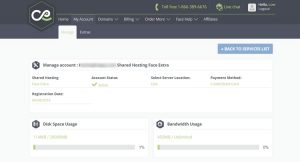Prophecy has its place, but not when it comes to business planning. If ongoing realistic assessments find the goals or outcomes of a plan infeasible, you’ll be left in a difficult situation if the plan has been promoted as nearly infallible.
Consider a scenario in which a company stakeholder puts immense pressure on decision makers to consent to unreasonable sales projections. However far-fetched the projections, they were sold as achievable. One disputes the “prophetic” nature of the plan at their own risk. Of course, the only thing truly prophetic about the plan is perhaps that it was destined to fall short. The company’s efforts and resources are wasted on fanciful, pie-in-the-sky sales expectations that can never come to fruition.
Unfortunately, such a case is no outlier. Most corporate leaders know inherently that the purpose of a business plan isn’t to construct prophecies. At the same time, executives, employees, and boards can begin to view business plan documents as almost divinely inspired. In other words, they see it as an unchangeable mandate, even if it’s not practical or logical. Suggestions of varying from the plan may be discouraged and disregarded. And stakeholders act accordingly, ultimately losing sight of the fact that a realistic business plan has to be flexible.
Remember: Standing still is stopping. Worse, it could mean getting run over by the competition. Success, on the other hand, is a point on a line rather than a destination. Too many businesses get stuck in a “this is working, so why change?” mindset. And they forget that even if you have attainable and beneficial overarching goals, the path to achieving them will likely deviate at some point.
I’ve seen this point proven again and again throughout my career. One organization I was working with gave me predetermined, measurable objectives with the promise of a bonus if I met them; I had suggested somewhat more flexible discretionary performance assessments. However, partway through the year, the business environment changed. I went to the board and explained that if I met the measurements as outlined, which I could have, the company would miss its broader goals. They understood, and we changed my bonus objectives. But had the conversation gone differently (as it so often does), I would have been stuck wasting time and energy on irrelevant goals simply because they were part of an immovable plan.
Strategies for Building Successful, Adaptable Business Plans
You already know the importance of writing a business plan. Now, it’s time to revisit the nuts and bolts to ensure that you’re creating flexible and realistic business plans instead of unalterable prophecies:
1. Ensure stakeholders understand the purpose of your business plan.
You probably assume the key people involved in approving, preparing, implementing, and monitoring the various aspects of your business plan and its results understand its purpose. Check those assumptions before you put a plan into action.
Try this exercise: Pick out a few stakeholders and gather them together. Ask them, “What is a business plan? Why do we have it? And what happens if we miss the mark or recognize it’s not realistic?” If nothing else, this experience will help you and other decision makers stop viewing a business plan as infallible and constant. Plus, you’ll find out quickly if someone on your team is stuck in a “business plan as prophecy” mindset.
Likewise, some may understand their role but not the totality of the plan and its purpose. Stakeholders may think that because they understand their role fully, they understand the business plan fully as well. This isn’t always the case, however. I call this situation “the elephant’s toenails” — you need to make sure everyone can see the whole elephant.
2. Make sure your plan goals and time frames aren’t merely crowd pleasers.
One of the best-kept secrets of how to write a business plan is to avoid writing it for a limited audience. Too many businesses construct plans at the request of outside stakeholders such as investors or financial institutions. The temptation in these cases can often be to consciously or subconsciously match the plan to external expectations — yet those expectations might not be realistic or even doable. Be careful not to trade long-term reality for short-term results.
3. Open yourself to a culture of feedback and thoughtful dissent.
Even if only a single person on your team doesn’t agree about something within your plan, their point is worth thoughtful consideration. When talking about defining your business purpose and plan, make sure your forum encourages reasoned disagreement. That way, you’ll get meaningful feedback. And if consensus isn’t possible, make it safe for stakeholders to “disagree and consent.” This gives them the freedom to speak their minds while still agreeing to strive to make your plan work.
4. Think of your plan as a part of daily life.
For your business plan to take on a less prophetic tone, review it regularly rather than once or twice annually. Build and adapt the goals and key performance indicators you outline in your business plan on a real-time basis. This will give you a solid view of whether the plan and its goals remain achievable or require adjustments for industry or company changes. The plan should be a living document rather than a static, stagnant one that can quickly grow outdated. It’s in pixels, not concrete.
Writing a business plan is a critical element of running a successful company. Still, don’t fall into the trap of thinking of the plan as sacrosanct. Look upon it as a practical road map that can sometimes benefit from readjustments to avoid bumps and costly delays.
Business & Finance Articles on Business 2 Community
(13)




